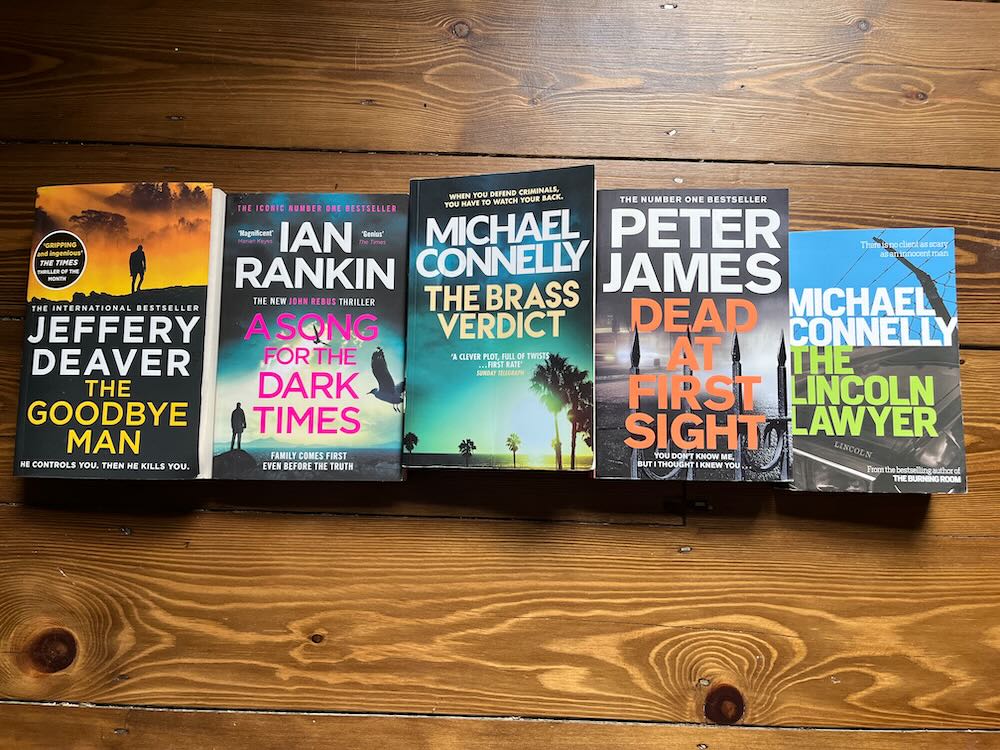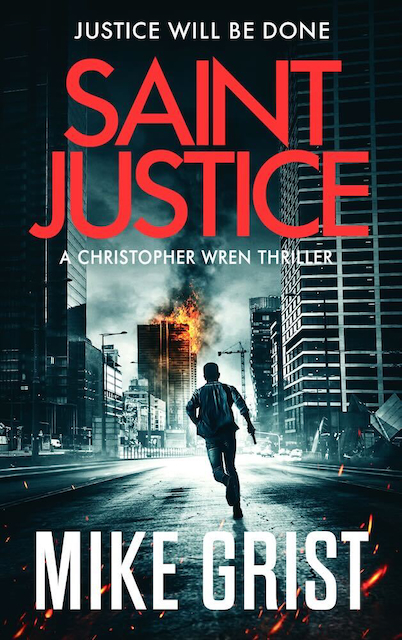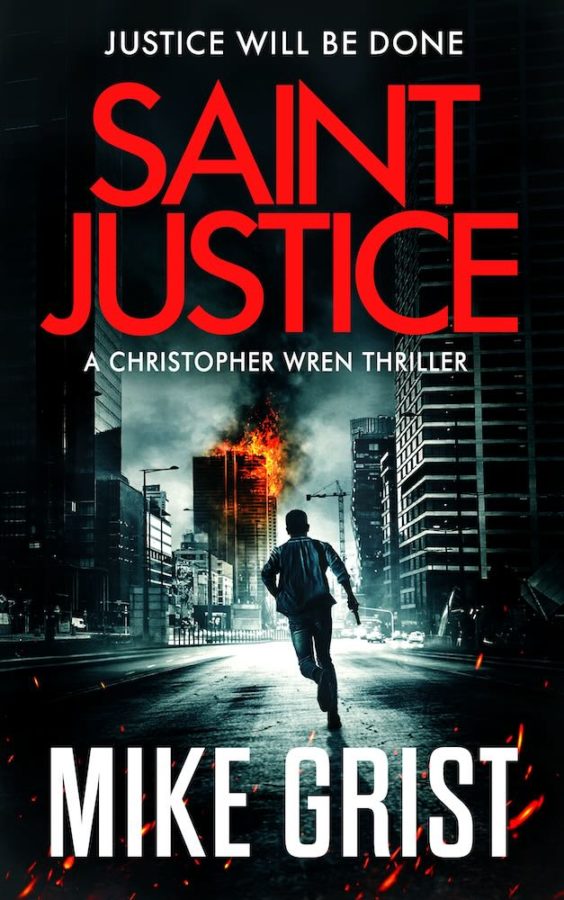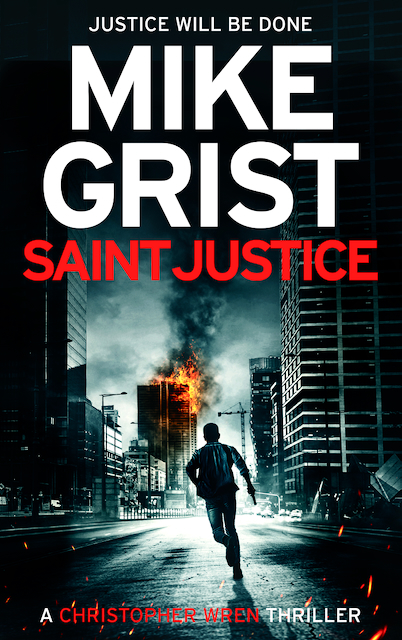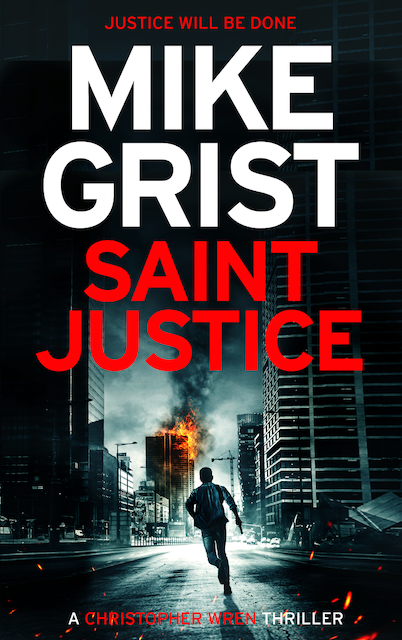In the past 6 months I reworked Saint Justice, No Mercy and Make Them Pay to make them the best they could be for audio re-records with WF Howes (narrated by Jeff Harding), with the major goal of increasing read and listen-through. If I can increase readthrough, I both entertain more readers with more books, improve my own storytelling skills and also increase profitability, which takes me closer to making writing these books my full-time gig.
So now I just finished the rewrite of False Flag. Here’s the changelog of everything I altered, followed by the latest Readthrough report.
Reduce Hacker Magic
- This is proving to be one of the bigger issues across all the reworks so far. For Wren to be able to call his hackers and have them just figure things out for him, as if by magic, really stretches believability. At first, as I did these reworks, I didn’t get it fully – it was kind of a guess. But now I read the arrival of Hellion and B4cksl4cker, and I kind of groan internally. The story starts to wobble on its axis. Like, things just got too easy. There’s no firm ground anymore. They’re too powerful as they are. So I cut them entirely.
- I’ve already reworked this book back in 2023. I didn’t write it up then, but I made major changes, mostly around the hackers. Their role was cut by maybe 50% – no more drone swarms, no more ‘ghost-tech’ reverse engineering a CCTV record by the absences, no more magical discovery of Sally Rogers as she escaped. Now they are wholly gone. I feel a bit sad about that, but it opens up a world of procedural ‘reality’ (quotes because I don’t know if it’s really realistic, but it’s certainly more realistic than before) where Wren has to work with more characters all embedded in their own hierarchies. It feels good. It feels grounded.
- So – no hackers tracking down the Ghost – both who and where he is. Wren has to do all this himself now, via additional investigative steps and clever clues he picks out. Yes, he uses some FBI agents to help with the techy stuff, but the role of that is limited. Wren does that hard critical thinking, they crunch numbers. This allows for cool revelations.
- No hackers tracking down Sally Rogers. She doesn’t really play a role in this book now, other than as a threat – though we’re honestly more worried about Gruber. It was odd she was here at all, and required knowing her from previous books to make it work. We didn’t ‘meet’ her in this book, so didn’t get to care about her here. Not great. But we did meet Gruber, so his role gets stepped up too.
- No hackers ‘ordering’ Wren a bike, or a monster wheels truck, or anything like that. At best, Wren can just steal vehicles now.
- No hackers putting together global simultaneous strikes for him (Belarus, Vietnam, somewhere else too) using Foundation assets who’ve never been in a combat role in their lives, like Teddy. That was always quite mad. All that stuff is gone – no international strikes remain.
- With the hackers gone, Wren has to use available resources in the CIA or FBI to help him with analysis. He meets several new characters and has good chats with them that cut to the core of the story’s theme as well as what Wren’s undergoing. Much better.
Reduce Silly Humor
- I didn’t write this in the other reports, but it’s been a factor all along. I guess this relates to the hackers, and my subconscious idea of ‘fun’, but I realize now I’ve been removing it all along. Sometimes it’s authorial stuff like my metaphors and phrasing. The timeless classic example is ‘Wren hit the compound and it crumbled like a wet Graham cracker’. I still think that’s fun, but I can also see it’s silly. I see those phrasings now, and it feels like authorial intrusion. It’s not honest to the story or the current stakes, so it has to go.
- This kind of silly humor was there with the Monster Truck and the drone swarm and jumping the Sepulveda dam too. Writing those sections (4 years ago now?) felt like a kid smashing toys together and having great fun. Even as I wrote them, I wasn’t sure they were OK. Now I see they’re not, so they’re gone. It’s more realistic now.
- It often came up with the hackers. They were always so removed from the stakes of whatever Wren was involved in that they’d make silly jokes about poop or sewers or something, and Wren would somewhat join in. but his friend just got killed and he’s hunting a murderer – I don’t think he’d do that. Humor has a place. Black humor is one thing. But silly humor doesn’t really work. Especially if Wren sometimes instigates it. He might be talking to Humphreys and makes an odd comment. I try to cut these. Humor is good but it’s gotta be the right kind at the right time.
Add Investigative Steps
- I added lots of these. In the 2023 edit I added a whole series of efforts by Wren to track Steven Gruber’s route off the bus to the Jeddah Mill. In the original cut, Wren got into a fight with an FBI agent and filmed it with a drone (with another magic hacker!) in order to get more eyeballs on his mission and have those people,e post comments of seeing Steven Gruber somewhere in LA. These comments, after processing by his real hackers (via hacker magic) allowed them to tell him to go to the Jeddah Mill. It’s pretty weak. The new process is great, lots of little interactions with different people, some battles, some hoodwinking, some fast talk and car chases.
- In the recent edit I added a lot more later on. I still relied on hackers and Sally Rogers to find who and where the Ghost is. Now Wren hits a dead-end and chases a historical lead (dating back to their days together in Afghanistan), analyzes multiple instances from real-life (research! Grounding!) to stack a map with pins, then uses his brain to narrow that down to a pattern. From there they analyze some footage, narrow it more, hit on the next lead over, narrow it further in a different way, then finally find the Ghost. It’s a lot more steps. Writing some of these, I felt genuine excitement that we were getting closer. Way better than just the hackers saying – ‘OK Chris, we’re about 50% done with the analysis, get in a helo and we’ll figure it out by the time you get close.’ Sigh.
Build Up the Villain
- I’ve done this with all the books in the rework so far. Previously, they pretty much all crumbled like Graham crackers at the denouement, and this got explained by them being agents for the Apex. I think this got tiresome. We fight our way to the end, and the villain basically folds, because they’re on orders to fold, often burning themselves alive. That’s how Saint Justice ended (it still is, Acker burns, but not until after a decent fight with Wren), Make Them Pay ended (Harkness burned herself alive), AND False Flag (the method of death was burning alive, ending with Gruber burning himself alive). I changed this for Harkness and the Ghost. They’re not just agents for the Apex. They took his money but have their own goals. They don’t want to die and fight to win until the last moment.
- As a result, each villain gets their own method of death, which freshens things up. In Make Them Pay, the additional method was hanging, which related to Harkness’ backstory. In False Flag, it becomes a series of jihadi-style decapitation. The Ghost was out there with jihadis for years, so it makes sense. It’s visceral and more real too. We are no longer ‘burned out’ (lol) on burning people alive – which should make book 5 Firestorm feel fresher.
- Also as a result, each villain has a clearer motivation, because they’re no longer just following the Apex’s drive. The Ghost is all about corruption, so that’s the theme of the book, and it comes through a lot more. We deal with a lot of instances of corruption, and we see it in Wren’s actions and morality. It’s a different book from the other books because of this. This also gives us a clearer uber-villain, the villain behind the villain, which allows that reveal to punch as well.
Increased Realism
- A lot of the above achieved this already. It’s always been a major critique of these books. Just recently I got a review from someone who’d read the first 3 and must’ve liked them enough to get to this one, but then said this one was so unrealistic they had to abandon it. One of the most unrealistic they’d ever read. Ouch. So, there are more ways I worked on this.
- One small thing was altering ‘aortal flutter’ to ‘atrial flutter’. I recognize now that this is still a big stretch. But at least if someone googles atrial flutter, they will find an existing medical condition. Aortal flutter is something I just made up. But Wren relies on it for his escape, so that’s a big problem out of the gate.
- At one point Wren rappelled out of a helicopter and tried to grab Sally Rogers on a racing ATV. Kind of nonsensical. He hit pistachio trees and bounced around but still managed to get her. It’s really unlikely so I cut all of it – and then with that cut, I realized there really was no need for Sally Rogers at all.
- Wren had the Foundation wage multiple international strikes, as well as back him on his strike on the Ghost. Now that team has been replaced by a Marine squad headed up by Miller, who appeared in a previous rewrite. It makes sense. Use highly trained operators for these advanced raids.
Reduce Repetition
- This is another one I do often and have been fixing in an ongoing way across all the books. It often happens with Humphreys in an argument. Humphreys will say Wren can’t do something, or Wren will berate Humphreys about something, and it’ll just go round and round several times. The same things get said in different ways. I’m trying to cut all these when I see them.
Improve Humphreys
- People have been getting sick of Humphreys for several books, mainly because he’s always standing in Wren’s way for kind of silly reasons. He just seems like a jerk. Early in this book he’s threatening to kill Wren and his Foundation, then barely relents by the end. Now he does all that less. He’s still a stuffed shirt, but the threat proves empty and he didn’t know about the torture. He apologizes and gets right. He’s not so one-note.
Reduce PVE
- I define PVE as Player Versus Environment, and it happens when Wren spends multiple chapters dealing with an obstacle that is non-plot relevant and not really very hard to overcome. It happened here mostly when he escaped the black site then jumped out of the Chinook he’d captured. He jumps out, gets knocked out, escapes a night dragnet in the desert, survives for a day by foraging, finds a solar plant and steals a car and a phone, then calls Hector Gutierrez to get him across the US border. That’s like 5 chapters of messing around just to escape. I realized as I was reading it – this is boring. It’s also silly. Wren’s in a helicopter. He can go anywhere he wants. Why jump out? So now he doesn’t. We skip all that nonsense and just go straight in the helicopter to a rendezvous with Gutierrez. It moves things right along to something meaningful and plot-relevant.
- The chase scene had elements of this as well. It took multiple efforts to escape the people chasing him, including vehicle switchouts and a drone swarm. I cut a few of those so the slog to get free doesn’t become boring.
As ever, that’s a lot of stuff. There are other things too. You’ll have to read the book to find out ;). I cut probably 15,000 words, but ended up adding in more than that back with all the investigation. 65,000 words, now. I’m pleased. I really hope this book will no longer be a kind of log jam turning people off the series.
Now, onto the Readthrough calculator!! Have a look:

Red is bad. Green is good. Figures show readthrough % from the previous book to that book. As we can see, figures for the most recent period, Mar 1-May 30, show either a decrease in readthrough (for orders) at 32%, or the exact same number for KENP page reads at 58.3%. Oh my.
That’s remarkably consistent. It looks statistically significant and unassailable, untouched by any of the changes I made to Saint Justice. Readthrough from 2 to 3 is virtually the same, with a tiny uptick to 64% in orders and a downturn to 61% for KENP. Not a significant change – basically exactly the same, signaling that no changes I made to No Mercy had any effect on readthrough – at least not yet. I’ve heard it can take up to 6 months to notice an impact, and this has just been 3 months.
On order 3 to 4 we’re down slightly to 57%, but up a decent amount for KENP to 74%, which is nice. After that it continues much as before.
Looking at the long term trend seems disturbing but is probably not really. Lifetime figures up until 2023 showed readthrough 1 to 2 of above 40%. Everything since has been around a third. So despite (or perhaps because of) all my changes over that period, readthrough 1 to 2 (the most important number) has decreased. There’s reasons for that, but it’s certainly not an improvement.
In summary, the story here is of an unchanging, relatively low readthrough. The key readthroughs of 1 to 2 to 3 have either remained consistent or dropped over the last couple of years. Once people get through book 4, though, they consistently stick around. It’s only about 7% of the initial readers that go that far, which is of course disappointing. It explains clearly though why latter books in the series sell fewer books. They may be better books, but nobody’s left to try them out.
I also analyzed my readthrough value – how much I can expect to make on average from a sale of book 1, taking into account readthrough percentages. It varies a little, but across the years is pretty consistent around $14. So as long as I spend less than $14 to make a sale of book 1, I’ll make money.
I ran a quick comparison of how that would look if I had much-improved (similar to decent-selling fellow authors) readthrough. Let’s say 50% to book 2, 90% to 3, then 95% from then on. With my current readthrough, I had total orders of 3300 in the 3 months from March to May. If I had the improved readthrough, but the same number of book 1s sold, that would have been more like 7250 total. Double the total sales. Extrapolate that to the readthrough value and it easily doubles, maybe more than that, because latter books in a series usually cost more than earlier books. At least $30 per book 1 sold.
So, what to make of all this?
I have some theories to explain it. Regarding the historical reductions in early readthrough, I put that down to people one-clicking the series to buy a lot more back then. When there were only 4 or 5 books, I used to get lots of one-clicks like that. It made readthrough look very good, because people didn’t often return the books for refunds. It inflated my readthrough, while at the same time I got hit with many bad reviews.
These days, I don’t get negative reviews. Hardly any at all. The reviews frequently say they read right through, fast pace, can’t wait for more. Exactly what I want to see :). So that’s one thing the rewrites have definitely addressed. They’re better stories for all the changes I made.
So why isn’t readthrough higher?
One answer is that this is too soon to know for sure. It’s only been 3 months, so maybe we need longer.
Another answer may be thematic. I used to believe it was the stuff people mentioned in their negative reviews, of which there used to be many – things like lacking realism or too violent or something – but since I’ve fixed all those, maybe it’s something else.
My current theory is about the underlying theme of all these books, which is civil strife. It’s there in every book. They’re about domestic terror attacks fracturing America society, and perhaps at best only a third of people want to read more about that. As long as that’s there in the background, maybe I will never get a better readthrough. And across the series, only 7% of people want to read about that enough to reach book 10. Once they get there, they want more, but there’s not very many of them.
It’s interesting. It’s a theory that’s tough to test, but time will tell.
I don’t feel too bad about this data, surprisingly. I have learned a huge amount from these rewrites. I’ve learned what theme not to repeat. I may even be able to repackage the latter Wren books, which are not about civil strife, into their own series with a new starting point, and see if I can get more people reading those books that way.
Another alternative course, and less drastic, is what I’m doing right now:
- Streamline and maximize my book backmatter to point directly at the next book in the series.
- Reduce the price of books 2-4 to 99c/p to see if I can increase readthrough and get readers to the later books. We’ll also find out if readers are price-conscious. Thus far, sales of these books are up.
More generally, I’ll also be looking at new series characters. I’ll continue Girl Zero. But with any subsequent series, I’ll be looking closely at readthrough all along. If you shed too many readers after one or two books, that’s something I need to address earlier.

